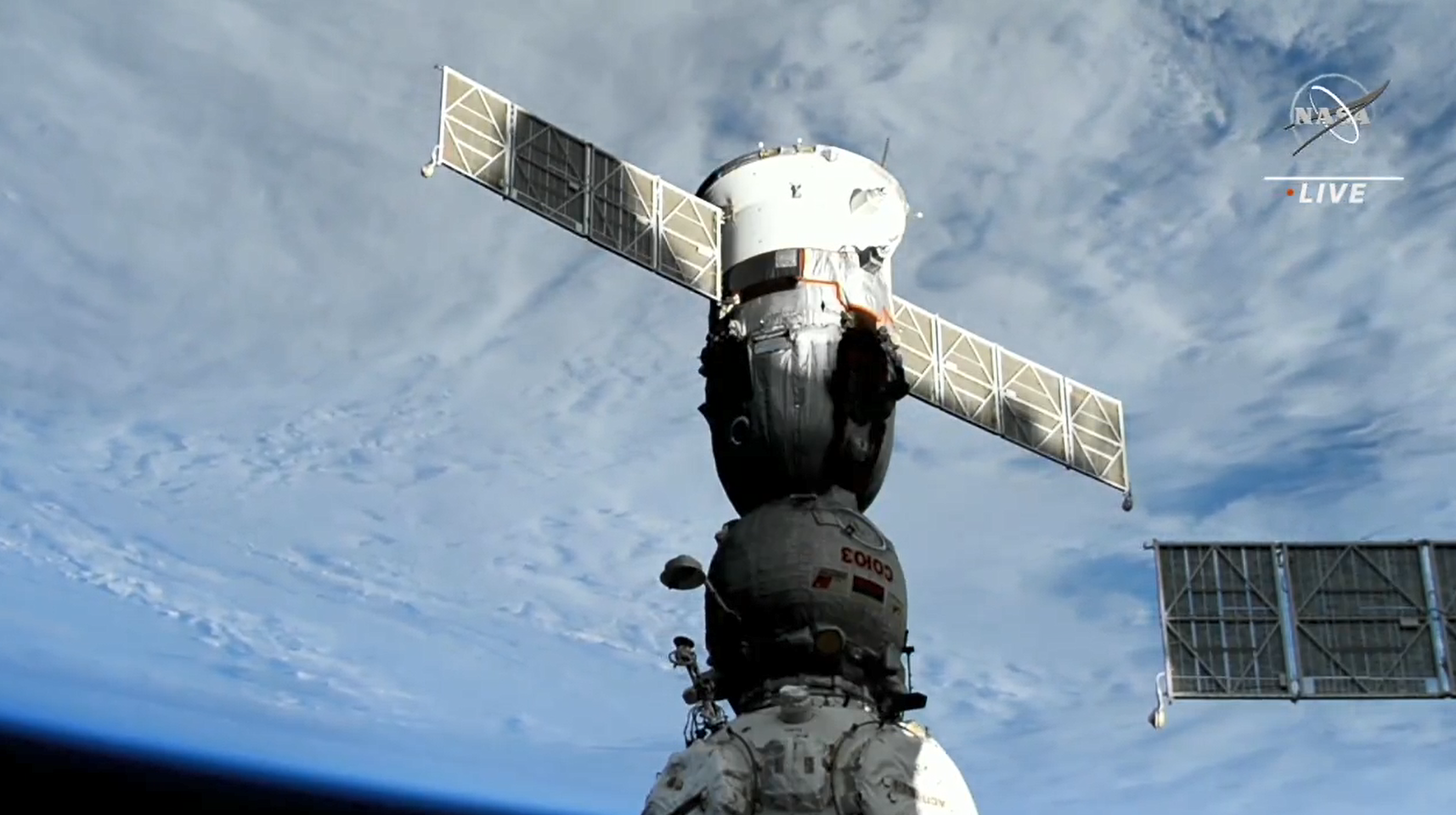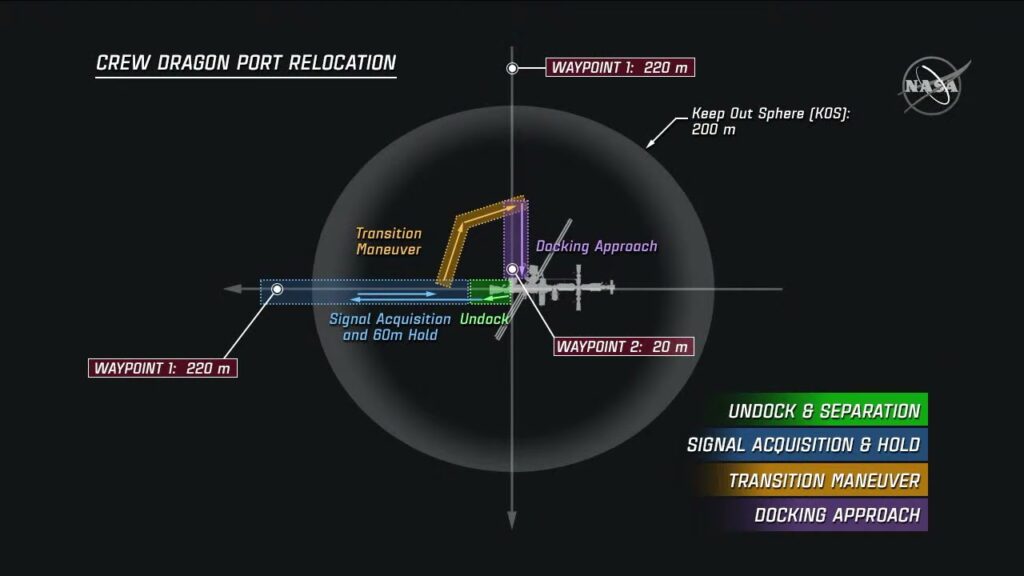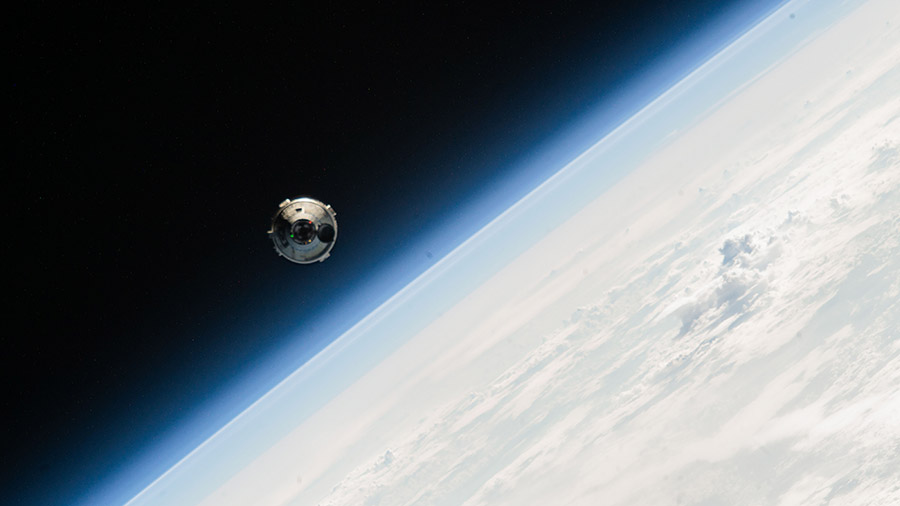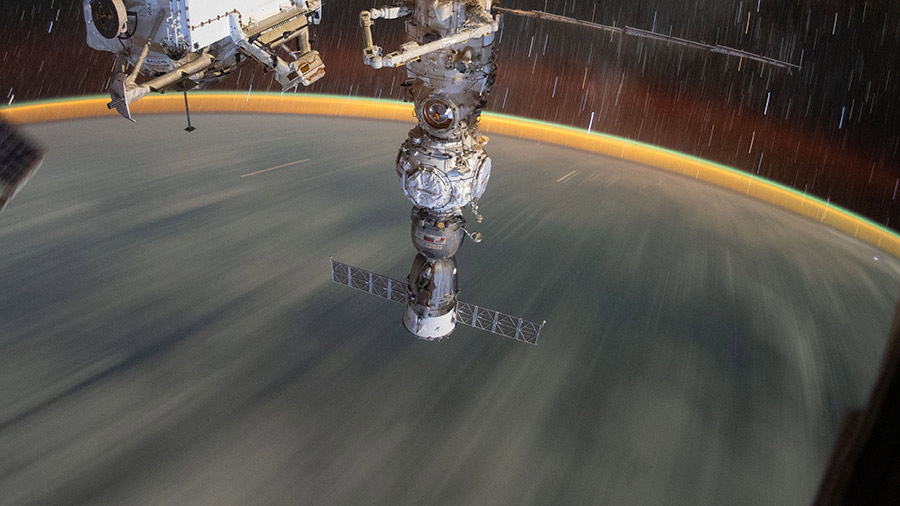
A Dragon cargo spacecraft is orbiting Earth and heading for a docking to the International Space Station. On Friday, the Expedition 70 crew members installed hardware, collected data for health investigations, and prepared for Dragon’s delivery.
NASA’s SpaceX 30th commercial resupply mission lifted off from Space Launch Complex 40 in Florida on Thursday, March 21 at 4:55 p.m. EDT. The Dragon spacecraft, carrying more than 6,000 pounds of scientific research, food, and supplies, will autonomously dock to the orbital complex at approximately 7:30 a.m. Saturday, March 23.
To prep for the cargo arrival, NASA astronauts Loral O’Hara and Michael Barratt reviewed Dragon operation procedures on Friday. The duo will be on console to monitor the arrival of the spacecraft, which will stay docked to the zenith port of the Harmony module for approximately one month. They were later joined by NASA astronauts Jeanette Epps and Matthew Dominick for a conference with ground teams to go over cargo unstowing procedures.
Once Dragon arrives, the crew will quickly get to work unpacking the cargo, which includes an array of new science investigations. Some of the new science consists of a set of sensors for the free-flying Astrobee robots, a botany experiment that will examine how two types of grass capture carbon dioxide from the atmosphere, and a CubeSat that will measure global sea ice parameters.
O’Hara also had some time to complete CIPHER activities. With assistance from Dominick, O’Hara had her eye and head movements examined to help scientists better understand the effects of spaceflight on an astronaut’s balance and eye health. CIPHER, or the Complement of Integrated Protocols for Human Exploration Research, is an ongoing suite of total-body experiments that will help researchers pinpoint how the human body reacts to long-duration missions in space.
Barratt also had some time for health research and spent the morning collecting samples for the Standard Measures investigation. Meanwhile, Epps refilled water in the Cell Biology Experiment Facility’s (CBEF) humidifier that was installed a few days ago. She then proceeded to install a second humidifier to CBEF to prepare for upcoming Space Organogenesis research.
At the Baikonur Cosmodrome in Kazakhstan, the launch of the Soyuz MS-25 spacecraft is now scheduled for 8:36 a.m. Saturday, March 23. NASA astronaut Tracy Dyson, Roscosmos cosmonaut Oleg Novitsky, and spaceflight participant Marina Vasilevskaya of Belarus will spend two days in orbit before docking to the station’s Prichal module at 11:09 a.m. Monday, March 25.
In the Roscosmos segment aboard station, the three cosmonauts—Commander Oleg Kononenko and Flight Engineers Nikolai Chub and Alexander Grebenkin—had the day off but did schedule in some time to clean the orbiting laboratory and complete their required two hours of daily exercise.
Learn more about station activities by following the space station blog, @space_station and @ISS_Research on X, as well as the ISS Facebook and ISS Instagram accounts.
Get weekly updates from NASA Johnson Space Center at: https://roundupreads.jsc.nasa.gov/
Get the latest from NASA delivered every week. Subscribe here: www.nasa.gov/subscribe




